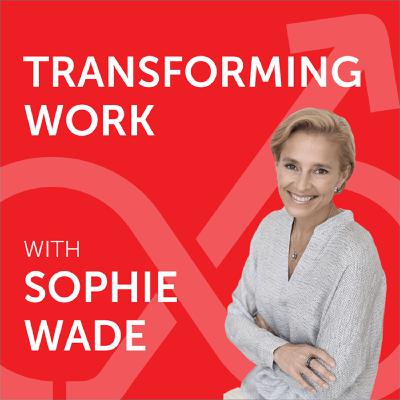154: Trond Aas - How Gamified Learning Motivates Sustainable Upskilling
Description
Trond Aas is CEO and Co-Founder of Attensi, a leader in AI-powered gamified simulation training. Trond shares his background spanning quantum physics, consulting and gaming. He explains how gamification grounded in behavioral science drives engagement which enhances initial and long-term learning especially for younger employees. Trond describes motivation as a critical success factor for sustainable upskilling. He discusses metrics to demonstrate return on investment in skills development and how to improve skills gap issues starting with cultivating a trust-based culture of learning
KEY TAKEAWAYS
[01:17 ] Trond starts studying quantum physics to explore fundamental questions about nature.
[02:01 ] After doing research for his military service, Trond goes into industry seeking practical impact.
[02:38 ] Trond joins McKinsey as a business school type experience before pursuing entrepreneurship.
[03:10 ] Interest in games stems from early programming and creativity cultivated during university.
[04:08 ] In gaming, Trond reveals how behavioral science is used to drive engagement and learning.
[06:12 ] Tribal, team-based successes are key to stimulating successful collaboration online.
[06:25 ] Fascination with learning and awareness of superficial gamification drives Attensi’s founding.
[07:44 ] Attensi applies science to drive motivation and behavior change with measurable results.
[09:40 ] Correlating simulated behavior with real-world outcomes to track learning impact.
[10:23 ] Measuring soft skills progress when observable behavior is hard to track.
[12:10 ] As technology evolves rapidly, upskilling must be ongoing across high-competence industries.
[12:50 ] Skill development tailored to specific job challenges is more effective than one-size-fits-all.
[13:45 ] Self-motivated learners thrive, while others need help to develop the motivation that anchors learning.
[14:47 ] Many Gen Zers lack key communication skills and may not recognize this development need.
[15:49 ] Most learning programs fail on motivation, which must be addressed first to succeed.
[16:22 ] Creating mastery experiences significantly increases learner motivation and outcomes.
[15:15 ] Game-based learning builds confidence that translates into better real-world performance.
[19:43 ] Companies underinvest in onboarding due to unclear ROI, hindering workforce readiness.
[20:08 ] Trond emphasizes data, ROI, and clear impact as critical for better training investment decisions.
[20:34 ] Attensi’s research shows poor onboarding leads to lower confidence and performance.
[23:42 ] Skill masking arises when employees hide learning gaps, often from lack of psychological safety.
[24:18 ] Cultivating trust-based cultures is essential to reduce skill masking and promote learning.
[25:48 ] Focusing on core skills for each role facilitates the shift to becoming a skills-first organization.
[26:44 ] Skill-based organizations can start small and ensure programs drive skill improvements.
[28:33 ] Maintaining skill use needs continuous feedback, clear expectations, and learning structures.
[29:13 ] Organizations must define competencies to stand out and align training with competitive goals.
[30:37 ] Tailoring programs to learner motivation and challenges supports effective skills development.
IMMEDIATE ACTION TIP: Learning motivation and skills usage are cultivated through mastery. Help employees sense their achievement to encourage their enhanced performance and growth.
RESOURCES
<p class="MsoNor












